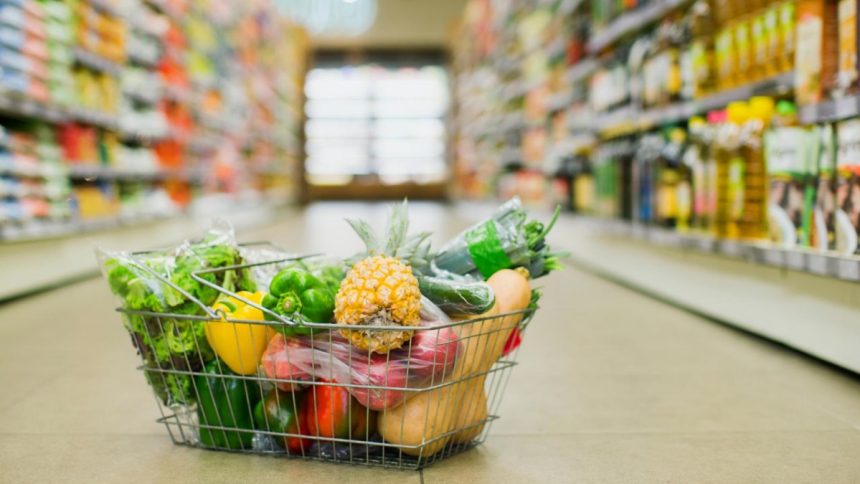Grocery stores face numerous challenges in their quest to remain competitive and meet the changing expectations of consumers. Let’s take a look at the main challenges grocery stores will face in the coming years to navigate this constantly changing landscape. These include adapting to digital transformations, managing health and safety standards, responding to economic shifts, and catering to an increasingly diverse consumer base with varied dietary preferences and shopping habits.
Integrating New Technologies
Adopting new technologies is essential to meet the expectations of modern customers. Innovative solutions like self-checkout systems, geolocation beacons, and mobile applications need to be integrated.
Not only do these technologies enhance the customer experience, but they also allow grocers to collect valuable data on shopping behaviors. Additionally, using an excellent POS system for grocery stores helps automate processes and reduce errors.
Adapting Logistics to Growing Demand

Consumers increasingly demand speed and efficiency in deliveries. Grocery stores must reinvent their logistics to meet these expectations. Supply chains need to be more flexible and capable of adapting to demand fluctuations. This includes not only home delivery but also in-store pickup services.
Investments in technology are necessary here to ensure effective stock and delivery management. Enhanced logistics can also incorporate real-time tracking systems for customers to monitor their orders, increasing transparency and satisfaction. Furthermore, partnering with logistic tech companies to implement AI-driven forecasting tools can optimize inventory levels and routing, significantly reducing delivery times and improving customer service.
Reducing the Ecological Footprint
Consumers are increasingly aware of the environmental impact of their purchases. Grocery stores must evolve to become more sustainable, both in terms of the products offered and operations. Eliminating single-use plastics, reducing food waste, and sourcing local products are some initiatives grocers should consider.
Adopting these measures can attract a more loyal and environmentally conscious clientele. Furthermore, initiatives like using renewable energy sources and engaging in community sustainability programs can enhance a store’s reputation and encourage consumer support.
Transitioning to digital receipts and promoting reusable bag usage are also effective strategies for reducing environmental impact.
Facing Online Competition
The emergence of online grocery stores has created fierce competition for traditional grocery stores.
To remain competitive, physical grocery stores must offer an exceptional in-store shopping experience. They should also develop their own online sales service. Creating loyalty programs and offering exclusive promotions to online customers can also help retain clientele. Innovation and personalized customer service will be key to dominating this market.
Additionally, integrating seamless online-to-offline services such as scan-and-go technology and advanced online order tracking can significantly enhance customer convenience and satisfaction, further differentiating traditional stores from purely online competitors.
Adapting to Food Trends
Consumers’ food preferences are rapidly changing. Whether for health or ethical reasons, more and more consumers are opting for specific diets (vegan, gluten-free, etc.).
Grocery stores must ensure they meet these new needs by offering a diverse range of products. Working with local suppliers and focusing on organic and additive-free products can be an excellent way to attract this clientele. Moreover, hosting educational events and tastings for alternative diets can further engage customers, fostering a community around healthy eating habits and sustainability. Establishing sections dedicated to these special diets and prominently labeling them can also simplify shopping for customers with specific dietary needs.
Securing Customer Data
With the rise of technology and e-commerce, customer data security becomes a major concern. Grocery stores must implement robust protection measures to prevent data breaches and cyberattacks. They must comply with current regulations to protect customers’ personal information.
A secure and reliable POS system is thus essential to gain and maintain consumer trust. Enhancing security protocols with advanced encryption methods, multi-factor authentication, and continuous security training for staff can also help safeguard sensitive information. Regular audits and updates to security infrastructure are vital to adapting to new threats as technology evolves.
Managing Operational Costs
Effectively managing operational costs is another major challenge for grocery stores. Margins in this sector are often thin, and maintaining a balance between quality, price, and profitability is crucial. Grocers must constantly seek innovative ways to reduce costs without sacrificing quality.
This includes optimizing operational processes, negotiating with suppliers, and automating certain tasks through technology. Implementing energy-efficient systems and smart inventory management solutions can also help reduce waste and operational costs. Moreover, leveraging analytics to forecast demand and streamline supply chain operations can further enhance operational efficiency and reduce excess expenditure.
The challenges ahead for grocery stores are numerous and varied. From integrating new technologies to reducing their ecological footprint, grocers must innovate to meet consumer expectations. Each of these steps requires not only financial investments but also a strong commitment to satisfy and retain customers. By adopting innovative strategies and staying attuned to trends, grocery stores can not only overcome these challenges but also thrive in a constantly evolving market. Are you ready to transform your grocery stores to make them more competitive and sustainable in the future?
Lynn Martelli is an editor at Readability. She received her MFA in Creative Writing from Antioch University and has worked as an editor for over 10 years. Lynn has edited a wide variety of books, including fiction, non-fiction, memoirs, and more. In her free time, Lynn enjoys reading, writing, and spending time with her family and friends.















